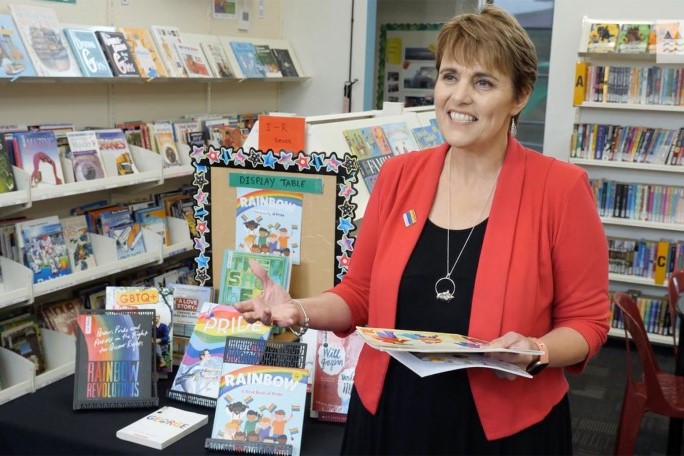Self-audit framework
This framework provides nine questions that could underpin teachers’ inquiries into how well the key competencies are being embedded into learning.

About this resource
This section outlines the key competencies and effective pedagogy self-audit framework. This tool helps schools audit their progress with integrating the five NZC key competencies into local curriculum.
Self-audit framework
What sorts of learning do both students and their teachers need to access if they are to become "confident, connected, and actively involved, lifelong learners"? (The 2007 New Zealand Curriculum vision statement)
The concepts of Initiative, Connections, and Challenge (ICC) provide a framework of nine categories that can underpin teachers’ inquiries into how well the key competencies are being embedded into learning.
The ICC indicator framework
|
Taking the initiative |
Building connections |
Being challenged |
|---|---|---|---|
Design |
Which KC do I plan to foreground, and why? How will students know what my purpose is? |
What relevant prior experience and knowledge might students already have? How do I plan to check? |
What specific learning opportunity could this key competency or learning area mix create? |
In action |
How am I modelling and encouraging the capabilities I want my students to build? |
Are, or how are, students identifying relevant connections to other learning and prior experiences? |
Have I got the right balance between challenge and capability? How do I know? |
Future focus |
How have my students and I identified and documented their learning gains? |
How might students use their strengthened capabilities in other contexts? What will support them in doing so? |
What new insights about the challenges and opportunities in this subject might my students take forward? |
Why "initiative" is a key concept
A focus on initiative in competency development considers:
- student voice
- understanding how their unique ways of being, understanding, knowing, and doing contribute to their learning
- learning to learn (including a focus on meta-cognition, or knowledge and understanding of your own thinking)
- assessment for learning
- two and three way reporting
- action competence.
The scope of "initiative" in this framework
- Learners need space to take initiative and directly experience what it feels like to be and become a "person who can". Which is a confident learner identified in multiple ways in the The 2007 New Zealand Curriculum vision statement.
Teachers need to provide the space for students to be active and develop agency by using their initiative in the learning process. They need to be able to understand how to "stand on their own two feet" as learners.
Students need to be sufficiently confident that they will actually take up these opportunities when they arise. The catchphrase "ready, willing, and able" is helpful for thinking about how to develop both the confidence and the necessary capabilities and inclination to act to strengthen the dispositions within our key competencies.
Initiative is not just a personality trait. The ICC framework refers to the relationship between the student(s), their educational opportunities, and the ways they use these opportunities to advance their learning.
Why "connections" is a key concept
A meaningful connection to an activity both invites and enables learning. A focus on connection within the key competencies considers:
- Teaching in context
- Knowing the unique cultural identities of your learners
- Action learning
- Experiential learning
- Curriculum integration
- Transfer to other aspects of their lives.
The scope of "connection" in this framework
- The 2007 New Zealand Curriculum vision statement specifies multiple types of connections that must be established to enable cumulative, ongoing, and lifelong learning.
A focus on connection gives students an opportunity to notice continuity and coherence in their learning. Potential connections can only be realised by the students themselves, not just the teacher seeing these links.
Teachers use both incentives and opportunities to support students in making meaningful connections in their learning.
This strand of the framework builds meaningful links within and across:
- learning areas
- different types of experiences
- a range of contexts, including whānau and communities.
When connections are made to the future, they become incentives for curriculum goals and create a bigger purpose for learning.
Why "challenge" is a key concept
"Challenge" within key competency development considers:
- personalised learning
- critical inquiry
- subject specific (critical) literacies
- working "in the spaces between" participants, drawing on diversity as a learning resource.
The scope of "challenge" in this framework
- The 2007 New Zealand Curriculum states that "students need to be challenged and supported to develop them (the key competencies) in contexts that are increasingly wide-ranging and complex" (NZC, p. 12). Being busy and engaged is not enough; the learning must also stretch students.
Students are always actively involved in using knowledge within learning experiences. The aim of developing key competencies is to encourage students to transform themselves from recipients into participants and contributors of knowledge. "Challenge" is about using, transforming, critiquing, and generating knowledge for purposes students recognise as worthy of their effort.
Using knowledge appropriately means learning about how the knowledge-building process is relevant to subject-specific information within a learning area.


